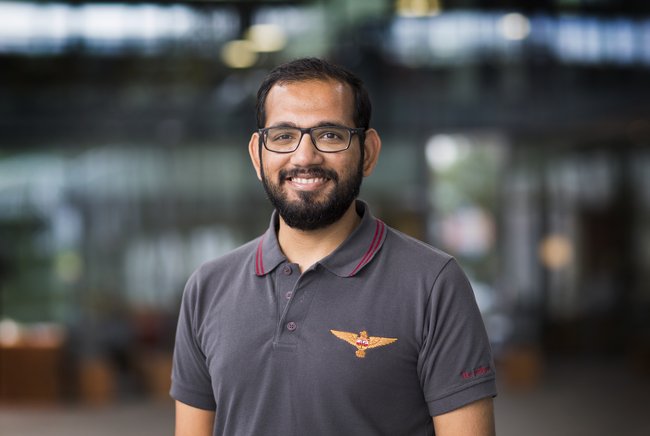Helping non-experts create mathematical models through natural selection
Dhruv Khandelwal defends his PhD thesis on March 4.

Science and engineering applications such as control of high-precision motion systems or electrochemical processes are often built on mathematical models of dynamic systems. PhD candidate Dhruv Khandelwal developed a framework that allows people without experience in data-driven modeling to fairly easily develop high-quality, optimized mathematical models of these dynamic systems. This is a vital tool that can help researchers of any stripe navigate the complex maze of modeling technologies and systems dynamics, and support data-driven research output and valorization. For instance, electrical engineers managing the health of the electricity grid or researchers studying the growth of cancer cells. Khandelwal defends his PhD thesis on March 4.
Generating a model that is optimized for your criteria
The difficult parts of creating mathematical models is selecting the right model structure and optimizing the model for your specific goals and performance metrics. Khandelwal’s algorithm accounts for both.
To help users generate correct models, Khandelwal developed a “grammar” for dynamic models using Tree Adjoining Grammar (TAG), which can explore modeling options in a variety of systems, structures and complexities. To come to an optimal model for the user, Khandelwal designed an evolutionary approach, based on Darwin’s definition of natural selection in biology: “[The] principle by which each slight variation, if useful, is preserved.” The fitness landscape the models compete in is determined by the user-specified performance criteria, and the evolutionary algorithm “evolves” models that do best in this environment.
As good as models created by experts
The automated modeling methodology was evaluated on a number of academic, real-world and benchmark applications. This evaluation shows that the framework successfully generates models with minimal user interaction. In cases where the modeled application was fully understood, the automatically generated models matched the nature of the true system. In multiple case studies, the model proposed by the framework was as good as models obtained state-of-the-art techniques employed by expert users.
Title of PhD-thesis: Automating Data-driven Modeling of Dynamical Systems. An Evolutionary Computation Approach. Promotor: Roland Tóth (TU/e), Co-promotor: Maarten Schoukens.